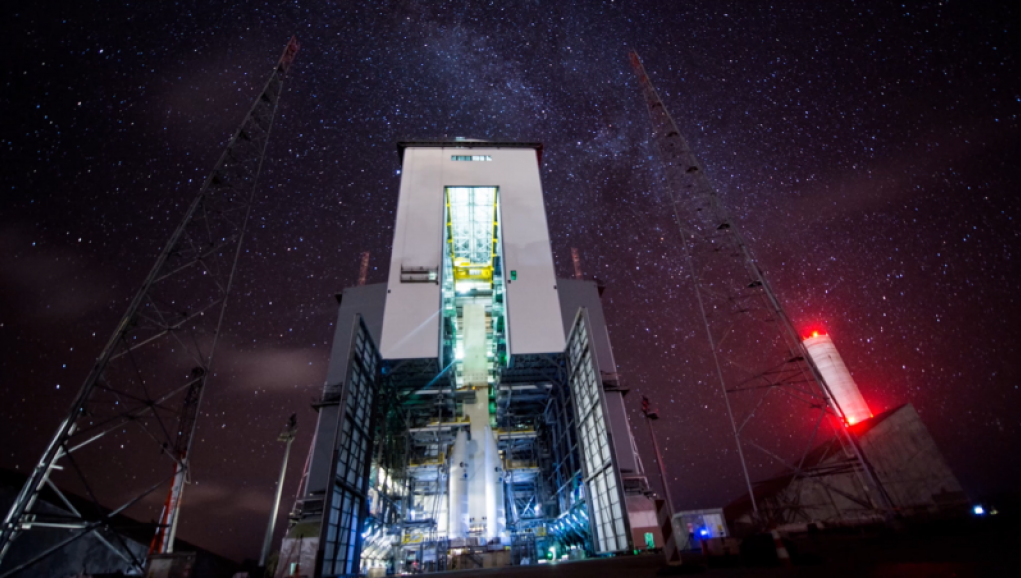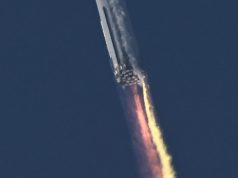The European Space Agency has given an update on the status of its flagship rocket, the Ariane 6 vehicle. While a concrete launch target has not been provided, the agency shared information on key milestones to be completed, including a test firing of the rocket’s first stage in French Guiana. It’s safe to say that the Ariane 6 rocket won’t launch this year, but the question now is how far its debut will slip into 2024.
During a news conference in October 2022, the director general of the European Space Agency, Josef Aschbacher, laid out the pathway for the Ariane 6 rocket to make its debut in 2023. “There are three very big milestones ahead of us that need to be accomplished by the first quarter of 2023 in order for the inaugural flight by the end of next year,” he said at the time.
In its Friday posting, the European Space Agency provided an update on these three milestones. The successful achievement of these milestones is a main prerequisite for the inaugural flight.
So, in the best-case scenario, it seems likely that the European Space Agency and the rocket’s developer, ArianeGroup, could complete these milestones by the end of the third quarter of this year. Assuming there is still a nine-month period between their completion and the inaugural flight of the Ariane 6, we can set a “no earlier than” launch date for the rocket in the second quarter of 2024. More realistically, the launch will occur sometime next summer.
The development of the Ariane 6 rocket is a matter of some urgency for Europe, which has set “independent access to space” as a priority. However, the Ariane 5 rocket will make its final flight before retirement in June, leaving the continent without a medium-lift launch capability. It’s likely that the European Space Agency will have to resort to buying launches from its competitor, SpaceX, for institutional satellite launches.
There has been some criticism that Europe did not innovate enough with the design of its Ariane 6 rocket when the vehicle was conceived in 2014. However, if the rocket had arrived by its original target in 2020, it would find no shortage of customers given the current lack of launch capacity in the Western world. Instead, the Ariane 6 will now be about four years late and compete against a new generation of rockets with varying levels of reuse and cost competitiveness. In other words, had ArianeGroup executed on the development of Ariane 6, it could have gotten the jump on all of these vehicles and been the West’s alternative to the Falcon 9. Now, it represents a missed opportunity.
On October 29th, 2020, rocket manufacturer, Arianespace, announced a delay for the inaugural launch of the Ariane 6 rocket. Initially scheduled to take place in 2022, the company released a statement that pushed the inaugural flight to Spring 2024.
The Ariane 6 rocket has had a long road, involving a complete overhaul of the design from the original Ariane 5 rocket, to one that is both more powerful and more cost effective. The new rocket is still in the development phase since 2019 and as such the new launch date provides much needed additional time to fully test out the Ariane 6’s systems.
One of the most significant developments to the Ariane 6 system is the construction of its own production line. With this in mind, the further delay of the Ariane 6’s inaugural launch is necessary in order to ensure that all components can function reliably and efficiently in order for the rocket to be used for missions after its first flight.
Arianespace is dedicated to providing customers with safely executed launches and the re-scheduling of launches therefore provides assurance of high quality launch services.
The re-scheduling of the Ariane 6’s first flight launch date ultimately provides plenty oftime to ensure that the rocket manufacturer’s ultimate mission: to provide low cost, reliable access to space, can be achieved. Not only that, but there is now ample time for design review and verification of all the critical new elements present on the Ariane 6.
Ultimately, this delay in the Ariane 6’s debut is a positive sign that Arianespace is actively striving for safety and reliability in their undertakings. With the safety of its customers in mind, the additional time gives them the excellent assurance they need for their launches, elevating the Ariane 6 into a trusted provider for the space industry.




















